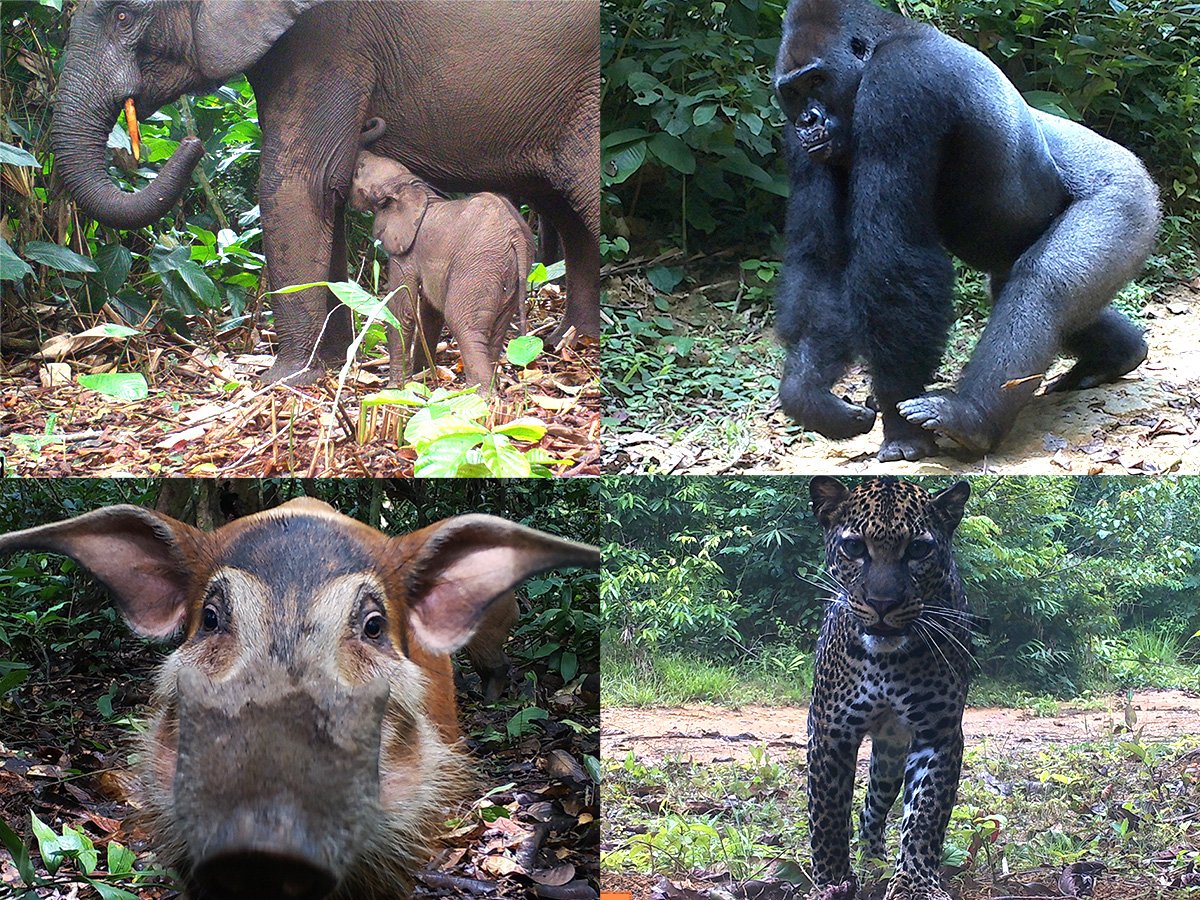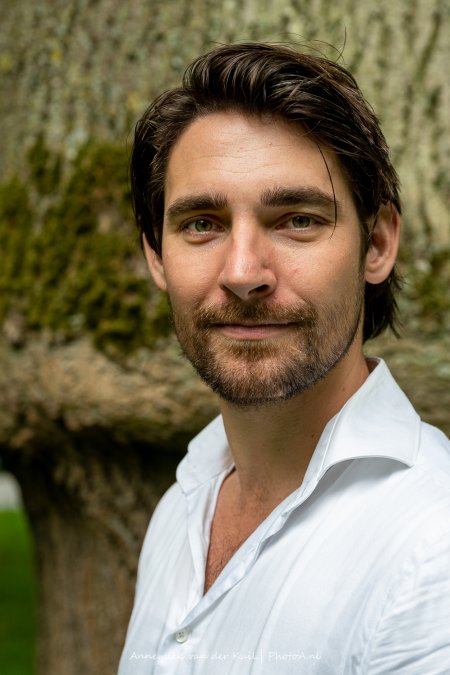Biologist Joeri Zwerts experiences the impact of his biodiversity research at global FSC meeting
Research findings contribute to discussions about global forest policy
By presenting his research findings at a major international meeting, Joeri Zwerts experienced how he makes societal impact as a scientist. Last month, Zwerts spoke at the general assembly of global forest certification organization the Forest Stewardship Council (FSC). At this meeting, he presented his research about the effect of FSC conservation measures on wild mammal populations in Gabon and Congo.
The goal of nonprofit organization FSC is to promote responsible forestry, both regarding the effect on nature and the environment as well as the social and economic impact. To that end, the organization grants certificates to companies that meet a certain set of conditions. But although FSC has been claiming for 27 years that their guidelines result in more biodiverse forests, Zwerts says there is no conclusive proof of that yet.
Only after the actual effect of a certification label has been identified, policymakers, NGOs and consumers are able to determine whether a label should be promoted or not. That is why Zwerts investigated whether FSC certification indeed has a positive effect on wild mammals in forests. To this end, he deployed camera traps in the tropical forests of Gabon and Congo. He did so both in areas managed by companies that are FSC-certified, and in similar areas managed by companies that are not.

Zwert's analyses of the camera footage indicate that FSC certification has a very positive impact on larger mammals, such as leopards, gorillas, chimpanzees, forest antelopes and elephants. According to the researcher, this shows that FSC measures are successful at curbing hunting in certified areas. The results of the study are currently under review by the scientific journal Nature.
General assembly
This year, Zwerts was invited as a speaker at the FSC General Assembly, a meeting that is held by the organization every three years. At the meeting, decisions are made that affect millions of square miles of forest, millions of workers and large numbers of indigenous communities.

The researcher experienced that his results were useful beyond his presentation. Zwerts: "At this meeting, there are leaders of environmental and social organizations who defend the rights of nature and indigenous communities, as well as the managers of enormous companies in the timber, paper and pulp industries, which all depend on forests. Throughout the week, a variety of issues were discussed, negotiations took place and motions were voted on. To be part of this was in itself a great experiences. But it was even more amazing to see that the results of my research actually influenced the discussions on certain important topics about conservation, and thus had a real impact."
A thorny issue
Zwerts also took the floor several times during the plenary sessions. Zwerts: "The question 'How to deal with Intact Forest Landscapes', forests that are intact and without roads or settlements, has been a thorny issue within FSC for years. To get support for a very important motion on the issue, my research was cited. That is when I grabbed the microphone to explain my take on the discussion."
As a researcher you are paid from society, so you also want to have a positive impact on society. That is what you do your research for.
The researcher is glad he dared to do so. Zwerts: "It was quite thrilling to say something at such a high-level meeting, in a room full of representatives of global organizations and companies. The motion eventually passed. Obviously not only because of my research, but it did contribute to it. It was very motivating to see that my data provided relevant information on a crucial issue that FSC has been struggling with for years, and that it helped to get everybody on the same page."
Societal impact
Zwerts is full of enthusiasm about his role at the general assembly. Zwerts: "I loved being there and to really contribute. As a researcher you are paid from society, so you also want to have a positive impact on society. That is what you do your research for."

